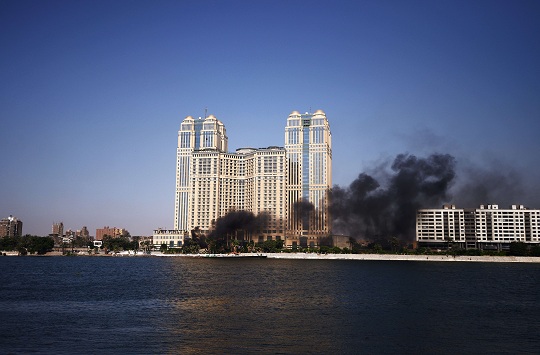The Qasr El-Nil Misdemeanour Court held a trial session Tuesday for 68 protesters arrested in Downtown Cairo on the fourth anniversary of the 25 January Revolution, on protest charges.
Human rights defence lawyer Sameh Samir told Daily News Egypt before the trial that most defendants in this case were arrested at random.
“Police officers check people’s IDs on the streets.,” Samir said. “Usually, they arrest those who have addresses in governorates outside Cairo.”
Charges in the case are related to breaching the Protest Law, and include an illegal public assembly, thuggery, violence, and assaulting security officers. Samir said protest cases are usually categorised as misdemeanours, with the exception of a few cases, where the defendants are accused of possessing firearms.
This case includes four members of the leftist Bread and Freedom Party, among whom there is one female defendant. Among them also is Mohamed Douma, who belongs to the group of injured persons of the 25 January Revolution.
Activists Mona Ezzat and media officer for the party told Daily News Egypt Tuesday that there have been numerous unsuccessful attempts to release Douma due to his health conditions. “Douma is blind and he suffers a problem in the chest due to birdshot he had received once,” Ezzat stated.
Ezzat added that the state-affiliated National Council for Human Rights (NCHR) checked Douma’s condition and submitted reports to the authorities, and so did lawyers, but these efforts were in vain.
Defendants in the case are detained either in the Qasr El-Nil police station or Abu Zaabal Prison. Defence lawyer Samir believes such cases are not of major legal or judicial importance to authorities, as much as they are about “sending a message”.
“The state just wants to show that the executive security body is present and effective, to scare people off. The proof is that on many instances protesters are detained for a few hours and questioned then released. At the end any person will think twice before protesting on the streets,” Samir stated.
On every commemoration of the revolution, protesters are arrested, despite the fact that many of their demands date back to the time of the revolution, such as retribution for the victims of the revolution.


